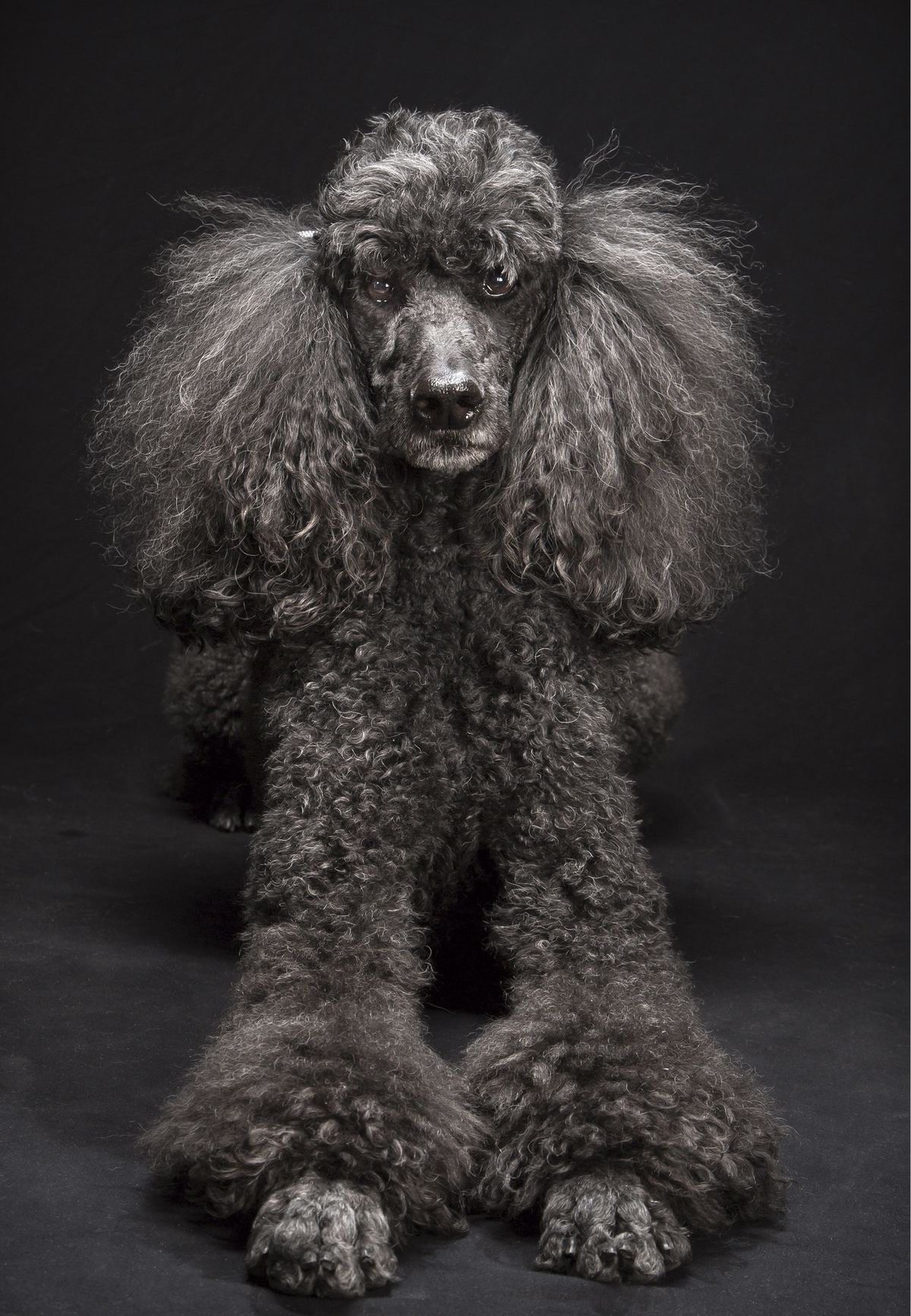‘Black dog’ theory tested
Series aims to erase adoption stereotypes

A woman was talking about “Black Dog Syndrome” — a theory that black dogs are less likely to be adopted than those with lighter coats, perhaps because of superstition or a notion that black dogs are aggressive. Experts debate whether it’s a myth or reality, but it struck Levy.
“A dog shouldn’t be overlooked just because of its coat,” Levy said. “That’s a minor element when it comes to the dog.”
That dog park visit was almost two years ago, but it inspired Levy to take on a project that’s still gaining international attention. He calls it the Black Dogs Project, a photo series that features black dogs against black backdrops, aiming to capture their beauty and counter negative stereotypes.
The photos struck a chord online and quickly went viral. Commenters raved about the striking details Levy brought out in each portrait — the soulful eyes, that one floppy ear, a Poodle’s ears blossoming with fur. The microblogging website Tumblr counted Levy’s blog among its “most-viral” of 2014.
Levy, 45, did it all in the basement studio of his Maynard home, where he lives with his wife, two young boys and a black-and-white rat terrier named Toby.
“I knew that, for this project, it would hit a nerve with two different groups,” Levy said. “Pet-lovers would love it, and photographers would like it if I did a good job.”
After adjusting to the sudden onslaught of attention, Levy decided to publish the work in a book. It’s slated to be published this September, titled “Black Dogs Project: Extraordinary Black Dogs and Why We Can’t Forget Them.” Part of the proceeds will go to a rescue group for Labradors in San Diego.
In the book and on his blog, Levy includes stories about each dog to counter myths about black dogs. Among those he highlights is Denver, a 2-year-old black Labrador that’s also a therapy dog. Denver works at an elementary school and spent time in a Boston firehouse after the marathon bombing.
Amanda Lukowski, Denver’s owner, said the photos were “breathtaking.”
“It captured his whole personality,” said Lukowski, of Northbridge. “Denver is a gentle giant. He’s 90 lbs. — he’s a big boy — but he is the most kind, caring, compassionate dog ever.”
Early on, the black dogs that Levy photographed came from owners he recruited through his Facebook page. Recently he also started working with abandoned dogs referred to him by shelters. After training his camera on them, he shares their photos online in search of a permanent home.
But his message to viewers isn’t necessarily to adopt black dogs. Mostly, he wants people to think beyond appearance when they’re adopting pets.
“I want people to make informed decisions on the best dog that will fit into their lifestyle,” he said. “The fur shouldn’t be the deciding factor.”
There’s no firm science to support the existence of Black Dog Syndrome, and some studies have dismissed it as a myth. Maryann Regan, director of shelter operations at the Animal Rescue League of Boston, said she doesn’t see widespread bias against black dogs. Still, she supports Levy’s work.
“Anything that helps to break down any barrier to benefit an animal is wonderful,” she said.
Among the victories that Levy ties to is project is the story of Annabelle, an 8-year-old black Labrador mix that was abandoned for more than a year, enduring a brutal winter outside. After hearing the story, Levy snapped three portraits of Annabelle and posted him on his blog last month. Two days later, a family adopted her.